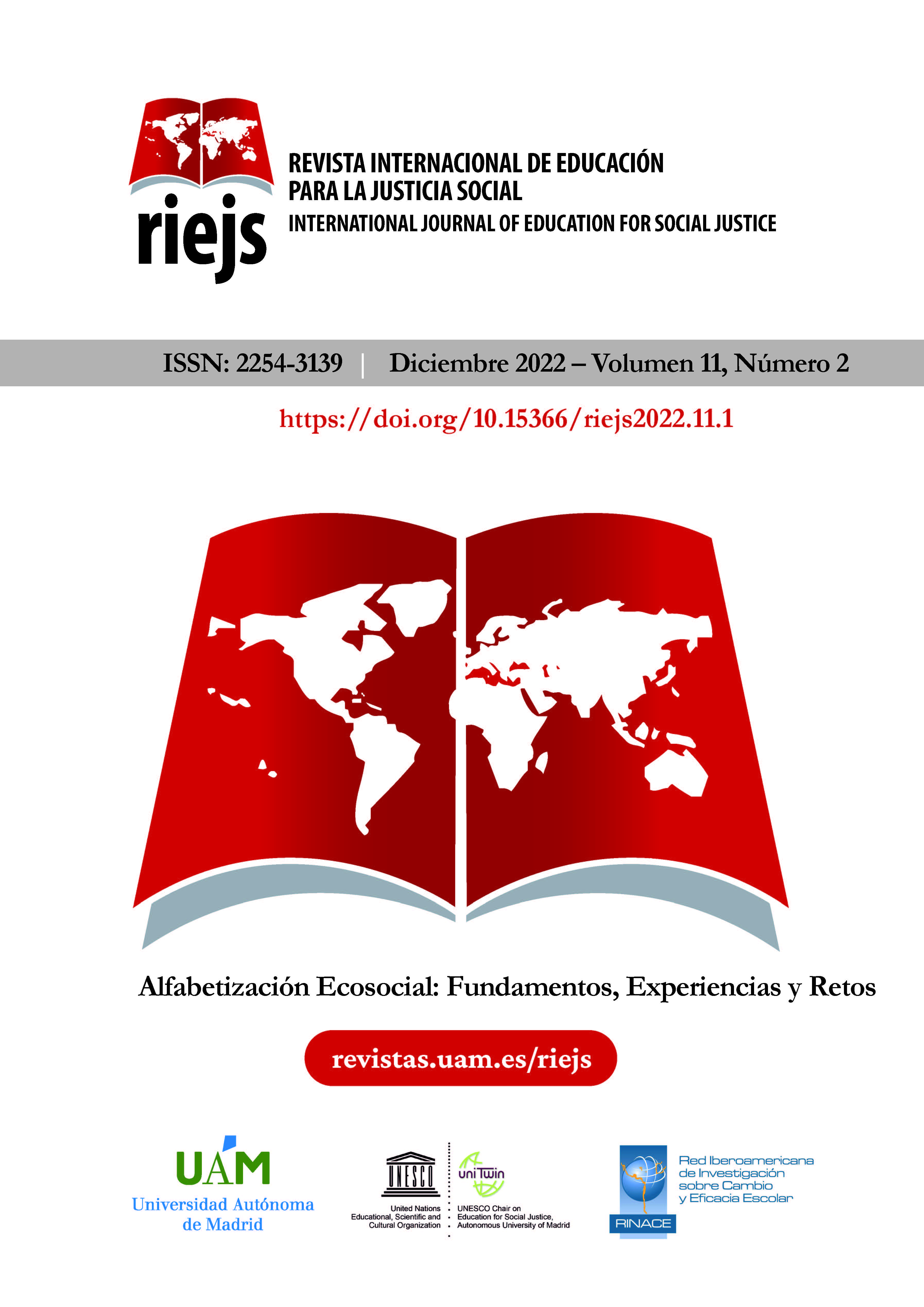Environmentalist Cassandra: Problematic Theoretical Assumptions of Ecosocial Literacy
Keywords:
Ecosocial literacy, Cassandra Syndrome, Environmentalism, Scientific truth, Hegemony
This work is licensed under a Creative Commons Attribution-NonCommercial-NoDerivatives 4.0 International License.
Abstract
A significant part of environmentalism is affected by a kind of Cassandra Syndrome that frustrates its attempts to anticipate solutions to the ecological crisis. Underlying, this is a way of understanding social transformations in which the enunciation of scientific truth should have political effects in itself. This article analyzes the failed theoretical assumptions that reinforce this practical impotence of environmentalism, which are essentially two: a vulgar materialism of deterministic nature, with important parallels with the old doctrines of Marxist economism, and an idealism prone to expect explosive social changes from purely communicative actions. And it questions the primacy of environmentalist approaches that are indebted to this scheme, such as those that prioritize "ecosocial literacy" as the center of gravity of change towards sustainability. For this reflective task, various sources are used, from climate anthropology to critical sociology. But its common thread is the theoretical tools offered by the political complexification of the Marxist tradition itself, especially the work of Antonio Gramsci. And three concrete lines of action are proposed that serve to rethink the efforts of environmentalism from an approach oriented towards the construction of a new political hegemony.
Downloads
References
Alba, D. (2017). Hacia una fundamentación de la sostenibilidad en la educación superior. Revista Iberoamericana de Educación, 73, 15-34. https://doi.org/10.35362/rie730197
Barnes, J. y Dove M. (2015). Climate cultures. Anthropological perspectives on climate change. Yale University Press. https://doi.org/10.12987/yale/9780300198812.001.0001
Capra, F. (1996). The web of life. Anchor Books.
Casal, M. (2016). La izquierda ante el colapso de la civilización industrial. La Oveja Roja.
Escrivà, A. (2019). Y ahora, ¿yo que hago? Capitán Swing.
García, E. (2021). Ecología e igualdad. Hacia una relectura de la teoría sociológica en un planeta que se ha quedado pequeño. Tirant Lo Blanch.
García Linera, A. y Errejón, I. (2019). Qué horizonte. Hegemonía, Estado y revolución democrática. Lengua de trapo.
Garzón, A. (2022, 23 de noviembre). Por un socialismo dentro de los límites planetarios. La U. Revista de Cultura y Pensamiento. https://la-u.org/por-un-socialismo-dentro-de-los-limites-planetarios/
Gramsci, A. (2015). Para la reforma intelectual y moral. Antología. Catarata.
Heras, F. (2016). Representaciones sociales del cambio climático en España: aportes para la comunicación [Tesis doctoral]. Universidad Autónoma de Madrid, España.
Herrero, Y. (2021). Los cinco elementos. Una cartilla de alfabetización ecosocial. Arcadia.
Laclau, E. y Mouffe, C. (1987). Hegemonía y estrategia socialista. Hacia una radicalización de la democracia. Siglo XXI.
Lakoff, G. (2010). We are the polar bears: What’s wrong with the way that the environment is understood. En S. Rowley y R. Phillips (Eds.), From hor air to happy endings. How to inspire public support for a low carbon society (pp. 167-199). Green Alliance.
Lázaro, L., González C. y Escribano, G. (2019). Los españoles ante el cambio climático. Real Instituto Elcano.
León, B. (2014). El cambio climático en los medios: Una visión pluridimensional. En B. León (Coord.), Periodismo, medios de comunicación y cambio climático (pp. 11-27). Comunicación Social Ediciones y Publicaciones.
Marx, K. (2008). Contribución a la crítica de la economía política. Siglo XXI.
Meadows, D. (2006). Los límites del crecimiento treinta años después. Galaxia Gutemberg.
Moore F. (2015). Challenges in integrating the climate and social sciences for studies of climate change impacts and adaptation. En J. Barnes y M. Dove (2015) (Eds.), Climate cultures. Anthropological perspectives on climate change (pp. 169-198). Yale University Press. https://doi.org/10.12987/yale/9780300198812.001.0001
Mumford, L. (2011). El pentágono del poder. El mito de la máquina. Pepitas de Calabaza.
Rendueles, C. (2016). En bruto. Una defensa del materialismo histórico. Catarata.
Rendueles, C. (2022, 1 de febrero). La enseñanza de la crisis ecológica en la educación superior. Una propuesta. El Diario.es. https://www.eldiario.es/opinion/tribuna-abierta/ensenanza-crisis-ecologica-educacion-superior-propuesta_129_8708019.html
Rich, N. (2019). Perdiendo la Tierra. La década en que podríamos haber detenido el cambio climático. Capitán Swing.
Riechmann, J. y González Reyes, M. (2015). Tiempo de duelo y de lucha. En J. Riechmann (Ed.), Autoconstrucción. La transformación cultural que necesitamos (pp. 239-266). Catarata.
Riechmann, J. (2020, 9 de junio). La crisis del coronavirus como momento del colapso ecosocial. Viento Sur.
https://vientosur.info/la-crisis-del-coronavirus-como-momento-del-colapso-ecosocial/
Scranton, R. (2021). Aprender a vivir y morir en el Antropoceno. Naturae.
Servigne, P. y Stevens, R. (2020). Colapsología. Arpa.
Tejero, H. y Santiago Muíño, E. (2019). ¿Qué hacer en caso de incendio? Manifiesto por el Green New Deal. Capitán Swing.
Turiel, A. (2016, 8 de junio). Dinámica de quiebra. The Oil Crash. https://crashoil.blogspot.com/2016/06/dinamica-de-quiebra.html
Turiel, A. (2022, 7 de octubre). El porqué de un llamamiento. The Oil Crash. https://crashoil.blogspot.com/2022/10/el-por-que-de-un-llamamiento.html?m=1

